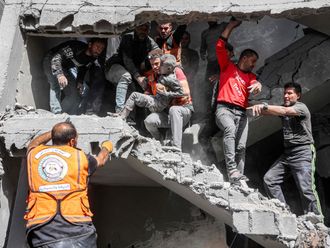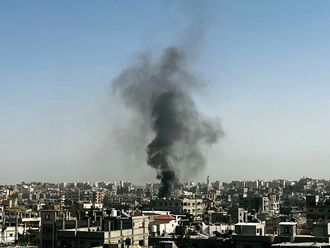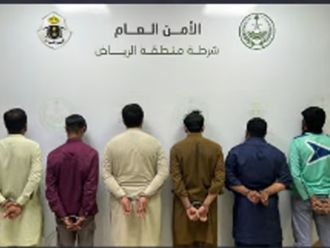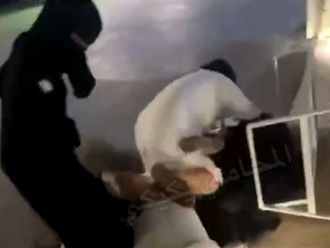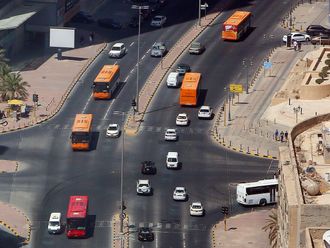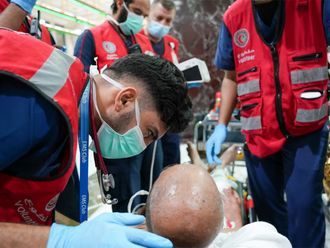
Nigde, Turkey: Light snow was falling when the two young men set out on horseback for the border to flee Iran. By the time they were deep in the mountains, the snow had become a blinding blizzard, the temperature had dropped below freezing, and they were barely alive.
Hesham Misaghi and Sepehr Atefi were joining what has become an exodus of dissidents fleeing Iran's political turmoil. For them that meant a harrowing journey through the country's rugged northwest in the dead of winter, with the help of Kurdish smugglers.
At a river crossing, the ice broke beneath them and their horses stumbled in, soaking the two with freezing water.
"There was no feeling in my legs and hands," recalled Misaghi, a tall, wiry 21-year-old.
Atefi, 20, spotted a van in the distance, grabbed Misaghi's arm and dragged him toward it. The men, both Iranian human rights reporters, reached the van, begged a ride and made it to safety in Turkey. At least 4,200 Iranians have fled their homeland since disputed presidential elections in June, according to a list compiled by activist Aidha Sa'adat, who herself slipped across the border into Turkey in December. These refugees have scattered to the US, Europe and the Gulf nations.
Most of all, they have come to Turkey around 1,150 of them, according to the UN refugee agency, taking advantage of the porous border and Turkey's policy of not requiring visas. Most of the new arrivals fled for political reasons, including those who took part in opposition protests after the vote. They bring the number of Iranians in Turkey to 4,440, as of February including "undesirables" in the eyes of the clerical regime.
The danger these Iranians face back home is clear. A month after Atefi and Misaghi's January escape, police raided their homes in Isfahan. Among the charges against them: "moharebeh," or "waging war against God," a crime punishable by death.
Police arrested their friend and colleague, Navid Khanjani, who was supposed to have fled with them but changed his mind. With Khanjani's arrest, eight people in the independent Committee of Human Rights Reporters have been jailed, and three remain in prison and could face execution.
Limbo
In Turkey, the refugees are safer, but they live in limbo. Almost all brought little money and cannot work because of Turkish restrictions, so they cram into small, coal-heated apartments with minimal furniture.
Many Iranian refugees hope the office of the UN High Commissioner for Refugees will arrange resettlement for them in the US or Europe. The wait for that could take years, as the refugee agency also is dealing with thousands of Iraqis who have fled to Turkey here from their own war-torn homeland in recent years.
Many of the Iranians have been put in the central town of Kayseri and nearby towns such as Nigde. Like other refugees in Turkey, they are required to live in particular towns designated by the Interior Ministry, must regularly report to police to confirm their locations, and must get permission from authorities to move to other cities.
In addition to the rent and other expenses, each adult is required to pay the Turkish government about $200 (Dh724), along with $100 for each child, every six months to stay in the country. The interior minister signed an order in March to lift the permit fees, but the order has not yet been enforced.
In the meantime, they watch the events back home, where hundreds have been arrested, and two have been executed out of 11 sentenced to death for taking part in opposition protests. From exile, some try to continue their activism, and some try to recover from their trauma.
Kayseri's police chief said any restrictions on Iranians are for their own protection. Some refugees claim they have been harassed by Iranian intelligence agents while in Turkey, with threatening phone calls or even physical attacks. Human rights officials say Iranian intelligence agents have infiltrated the refugee community here, leading to widespread suspicion.
Despite the obstacles, reform activist Sa'adat says she is determined to keep up her political work, campaigning for Iranian women's rights and writing for the Committee of Human Rights Reporters.
"I am not an immigrant. I've come here to continue my work," said Sa'adat.
After months of repression, Iran's reform activists are all in hiding, in jail or in exile, she said.
"When we leave our country, we leave behind all our past, our love, memories, the sum of our lives."




